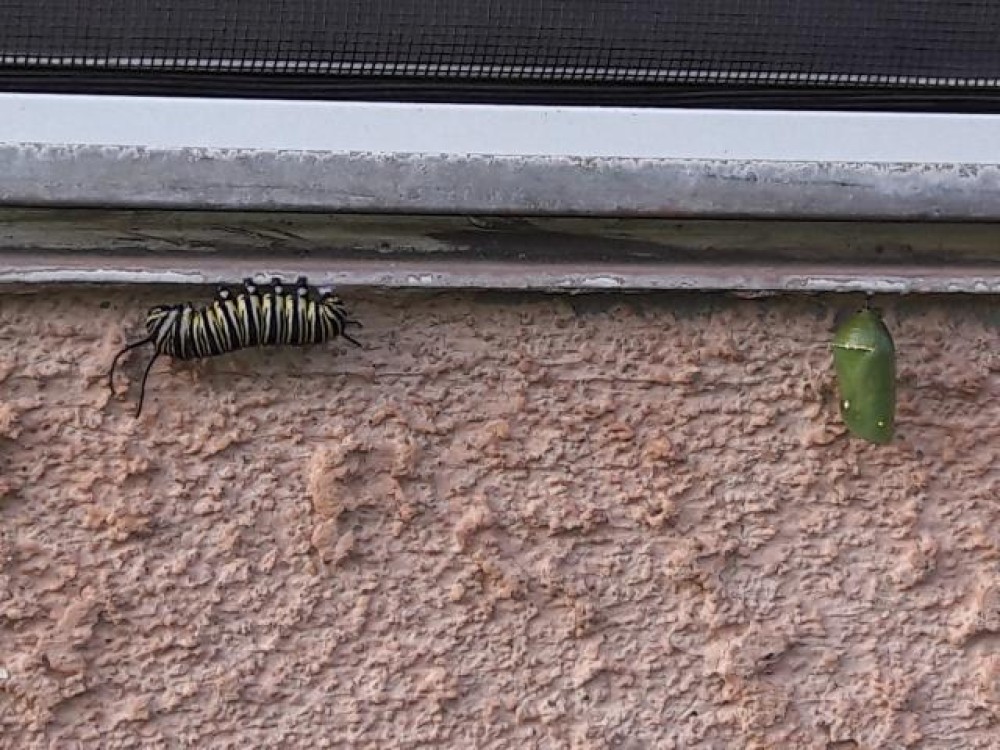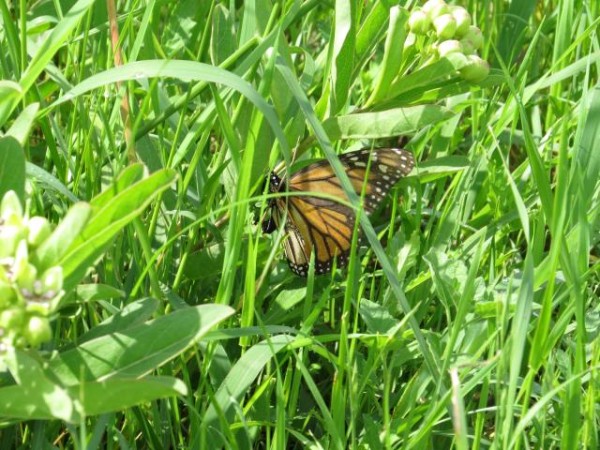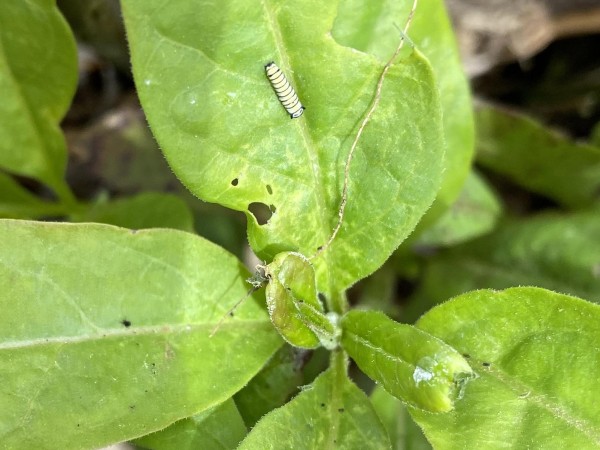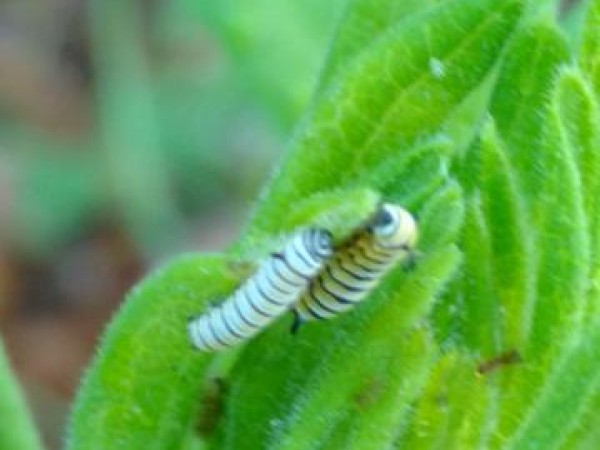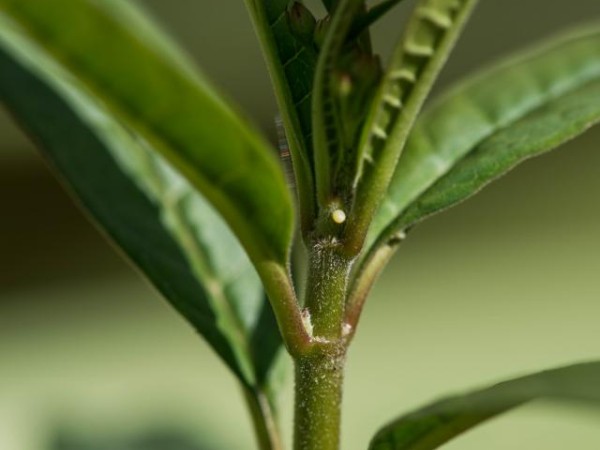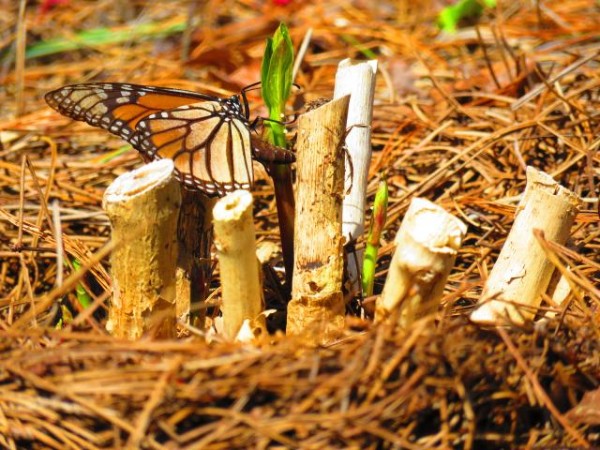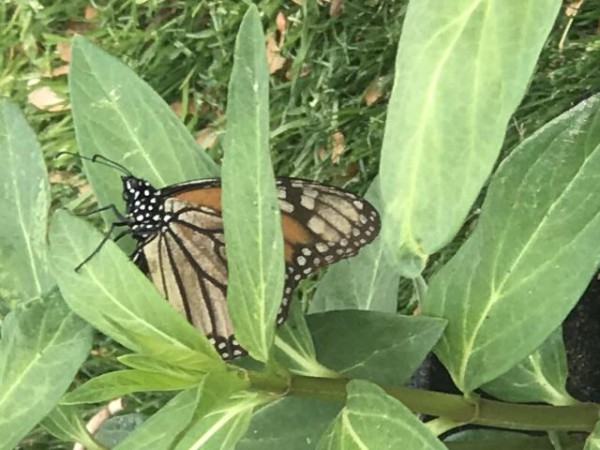True Survivors Confronting Variable Winds and Temperatures
Eastern Population of Monarchs: How Far North?
The migration's leading edge remains where it was last week, poised to enter Kansas at latitude 36°N. There were also a few first sightings along the East coast. There was a warming trend in temperatures last week and then a cold snap in the central part of the US. Migration can be a stop-and-go journey with wind and weather in control.
Watch temperature and wind conditions on your favorite weather app. Predict when monarch migration might pick up.
Watch the week-by-week changes on the Journey North migration maps.
Monarchs Need Milkweed As Well As Warm Temperatures
The next generation can complete the life cycle more quickly where temperatures are warm. Larvae seen in Texas, Louisiana and Oklahoma are safe from the colder temperatures experienced elsewhere. And, of course, monarchs need not only warm temperatures but also milkweed. Keep your eye on where milkweed has emerged. This week the northern most sighting of milkweed emergence came in from an Illinois citizen scientist.
From Zion, IL: Winona was "So excited to see these leaves appearing. (04/01/2020) Link to report
From Montgomery, TX: Kathy submitted this report, "This is a follow-up photo to my Monarch Adult Sighted report for today. I saw 12+ monarchs in about 20 minutes with the females egg-laying and at times resting and sunbathing. This is a photo of one of the beautiful monarchs as she lays an egg on a fresh milkweed." (03/29/2020)
From Ringgold, LA: Thomas saw "multiple caterpillars on multiple plants. Also noted many newly laid eggs." (03/29/2020)
From Abilene, TX: Jean noted that she "usually do not see larva or monarchs in the spring. This is the second year in a row." (04/01/2020)
From Edmond, OK: Patrick reported on the "last day of March, 63 degrees; a sunny day, light south winds at 4 mph. A tired and tattered, old dame from a long winter's journey arrived today and found the milkweed she so desperately needed to complete her life's story." (03/31/2020)
From Albertville, AL: Ken reported, "saw this monarch is on a swamp milkweed sprout laying eggs." (03/29/2020)
From Rutherfordton, NC: Lisa exclaimed, "Female laid 50+ eggs on 8 plants. Hope the plants grow fast...we are sooo excited." (03/30/2020) Link to report
From Virginia Beach, VA: Evelyn "was so excited to see [a monarch]...hover[ing] around for about an hour and lay[ing] eggs all over my Milkweed plants! This seems early for the area?" (03/25/2020)
Western Monarch Population Migration News
As you will read in Gail Morris' article, "Monarch sightings dropped this week, a harbinger of the spring season. Monarchs that eclosed last summer and fall have mostly left the overwintering sites in California and Mexico and are reaching the end of their lives."
Read more of Gail Morris' article: Looking for Monarchs, Western Monarchs 2020 Spring Report #5
Looking For Fun Activities To Do At Home?
Look no further! Journey North has many resources for anyone with a curious mind. This week we feature resources related to the Special Connections Between Monarchs and Milkweed Let's all explore together.
Wondering If You Are Making A Difference?
It is a difficult time for many of us in our Journey North community. Please know that your are making a difference to monarch conservation. Regardless of where you are observing monarch activity, your reports are critical. If you need an extra boost, please watch an informative and inspiring TEDWomen Talk by Mary Ellen Hannibal. As Ms. Hannibal says "We have exactly the platform to save nature. It’s called citizen science.”
Journey North is highlighted as one of the citizen science platforms providing valuable data on monarch migration.
If you are looking for a good book to read, Mary Ellen Hannibal is the author of Citizen Scientist: Searching for Heroes and Hope in an Age of Extinction.
